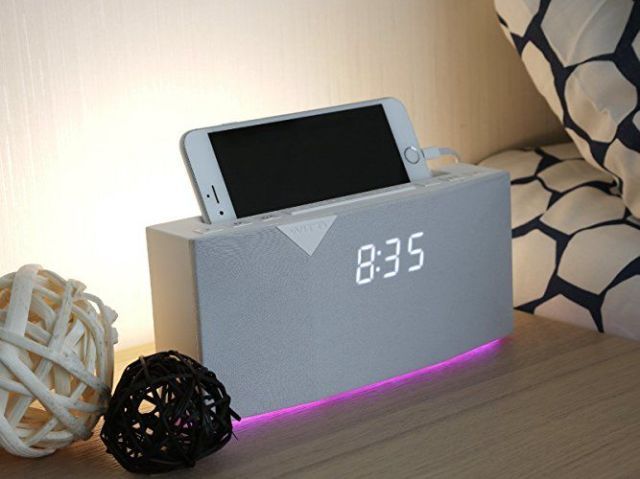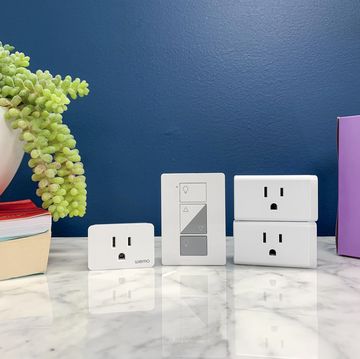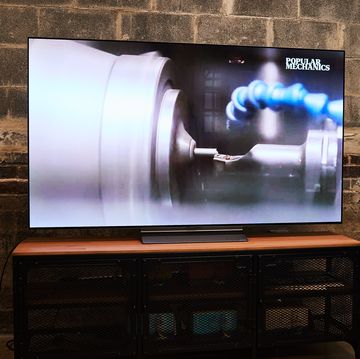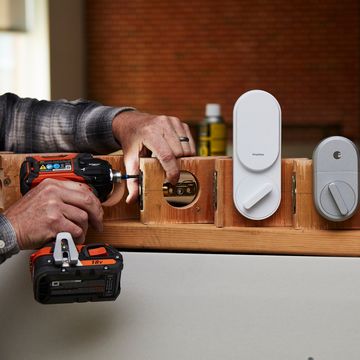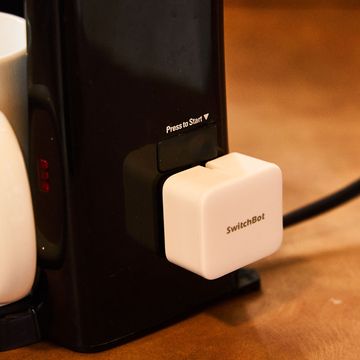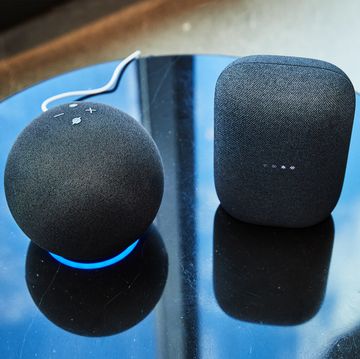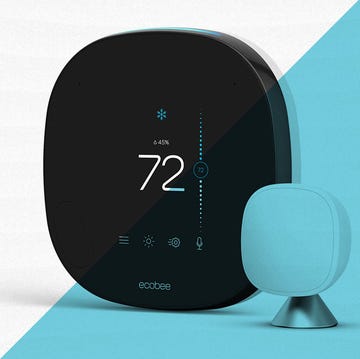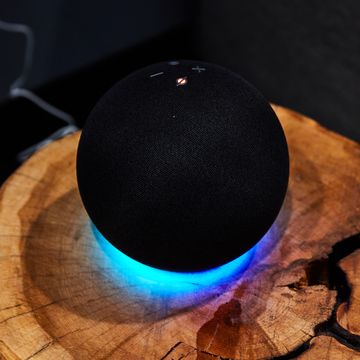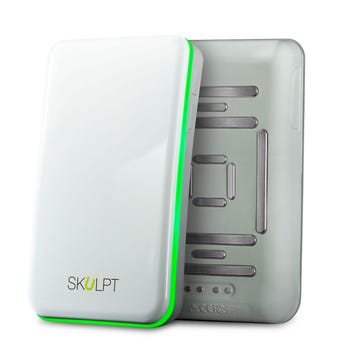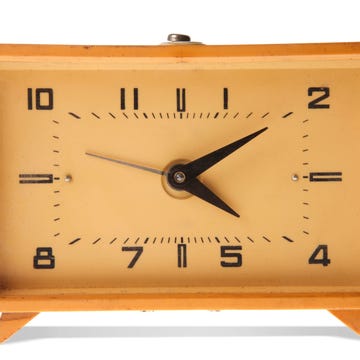My wife Regina and I woke to a sharp burst of simulated sunlight coming from the alarm clock. Ten minutes later, it emitted a weird series of notes, like outtakes from a Philip Glass composition. I didn't expect that. The night before, when Regina paired the Beddi clock ($99) with her phone and set up the app, it filled our bedroom with pleasant forest sounds for twenty minutes before we slept. But the next day, it went for experimental classical. She didn't seem amused, but I was delighted. I've always wanted to wake up in the future.
I got up groggily and moved toward the bathroom. The smart lightbulbs and plugs had pre-lit the rest of the house, just as I'd instructed them to, using their respective apps. I'd also set them to turn on in the evening—and at no other times. One rainy afternoon, Regina was trying to read. "I need you to use your phone to turn the damn lights on!" she shouted across the house. But I wasn't angry that it didn't work perfectly. I felt like we'd employed a capricious robot butler, something I'd often dreamed about.
The Philips Sonicare FlexCare Platinum ($150) was charging on the bathroom counter. Its box had advertised "Smart brushing/Superior results," and three different sensor settings that I could monitor on my phone. In practice, the app treated brushing like a game, guiding my technique and rewarding consecutive days of use with sounds and graphics. Every day, my phone asked me if I scraped my tongue. And I had. The motivation was working. If only it had been around thirty years ago, when I used my tongue for something other than licking the salt off of pretzel rods.
That morning I got so busy watching the app's teeth change color that I missed my mouth. The vibrating head sprayed toothpaste goo all over my mirror. Three days later, I abandoned the app, preferring a phone-free electric toothbrush. It was still smarter than what I'd had before.
The Flosstime ($30) mounted on my mirror, also speckled with goo, was there to remind me to floss. It came with a cute little cartoon frog that I snapped on the front, the equivalent of using an animal washcloth to scrub behind baby's ears. Push the plastic disk and it dispenses eighteen inches of floss, smiling with its blue light. I flossed for two minutes, long enough for it to blink in approval. I was actually flossing, if not more often, then at least more enthusiastically.
After wiping down the mirror, I moved to the kitchen. Our Behmor Wi-Fi coffeemaker ($198), also paired to my wife's phone, was set to "presoak" the coffee grounds, leading to a richer-tasting cup. Previous mornings, it worked. But that day, in my bright kitchen, the app timer had faltered, and nothing was brewed. Regina grumped out of the bedroom and pressed the manual start. Two minutes later, as I was fumbling with some waffles, I noticed boiling water emerging from the Behmor, getting all over the counter. Regina returned. "Stupid apps are ruining our lives," she said while I cleaned up the hot water.
That morning, the layer of apps and Wi-Fi had made the merely unpleasant act of waking up early into a whirlwind dystopia. Then a week went by. We set the lighting system's schedules. And the Brave New Coffeemaker kept churning out cup after cup. The tech wave had washed over us and we'd adapted. Now, I wake up in the future, fascinated to see what my robot butler will learn next.
